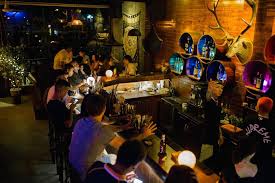
Introduction
Pubs have long been a cornerstone of British culture, serving as social hubs where communities gather to unwind, celebrate, and connect. Following the upheaval caused by the pandemic, the relevance of these establishments has only increased. As restrictions ease and life returns to a semblance of normal, the revival of pubs in the UK signals not only a return to leisure but also a reconnection with tradition and community values.
The Impact of the Pandemic on Pubs
The COVID-19 pandemic brought unprecedented challenges to the hospitality sector, with many pubs forced to close for extended periods. According to a report by the British Beer and Pub Association (BBPA), nearly 23,000 pubs across the UK faced potential closure during the peak pandemic years. The government introduced measures to support the sector, including the ‘Eat Out to Help Out’ scheme, aimed at revitalising local businesses.
The Resurgence of Pubs
Now, with restrictions lifted, new trends are emerging within the pub industry. Many establishments are adapting to changing consumer preferences by diversifying their offerings. Craft beers, gourmet food options, and outdoor seating areas have become popular attractions. A recent survey indicated that 65% of respondents have increased their frequency of pub visits compared to last year, highlighting a robust desire to gather socially once again.
Pubs are also increasingly embracing technology to enhance the customer experience. Contactless payments, online booking systems, and mobile apps for ordering have become commonplace, making visits safer and more convenient.
Community Engagement and Cultural Significance
Pubs represent more than just a place to drink; they are vital community hubs that host events, support local charities, and engage residents. Many pubs are now hosting quizzes, live music nights, and community events to foster a sense of belonging and encourage community spirit. This emphasis on local culture is essential for the survival of many pubs, distinguishing them from larger chains.
Conclusion
The revival of pubs in the UK is not merely a return to pre-pandemic habits but an evolution that embraces modern consumer preferences while maintaining the age-old traditions they are famed for. As public interest in local community spaces grows, the long-term significance of pubs as a social fabric of British life remains strong. The future of pubs looks promising, with both patrons and owners navigating a new landscape that pays homage to history while adapting for the future. For those who cherish the pub experience, this revival presents an exciting opportunity to reconnect with friends and community.
You may also like

The Importance of Pubs in British Society and Their Resurgence

The Cultural and Historical Significance of Poppies
